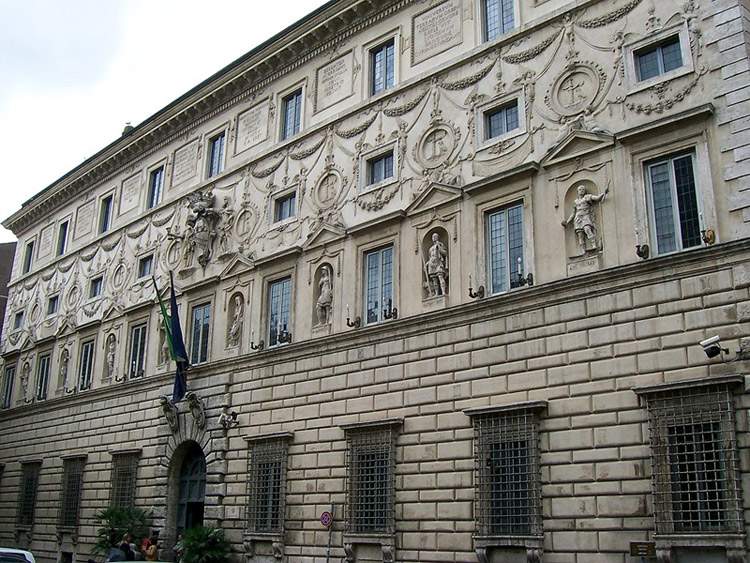Free admission to museums, Council of State gives suggestions to MiBAC: favorable opinion, but must better monitor results
After last November’s earful, the Council of State, which had asked the Ministry of Cultural Heritage for clarifications regarding the plan for free admission to state museums announced in September by Minister Alberto Bonisoli, finally issued a favorable opinion after receiving the requested clarifications, but still made some important remarks that in some cases seem almost like suggestions addressed to MiBAC.
In the opinion published on Dec. 10, Palazzo Spada pointed out that MiBAC has better specified its objectives, which focus in particular on these four aspects: expansion of free access days with rationalization and diversification of the relevant periods, through greater flexibility of the offer based on the needs of the relevant catchment areas; management of the flow of users for the purpose of an orderly enjoyment of cultural places compatible with the protection of cultural heritage; enhancement of lesser-known museums and cultural places, through the improvement of policies to encourage the use of museums by the community; and increasing the attendance of young people between eighteen and twenty-five years old at cultural places, through the reduction of the cost of the ticket to two euros.
On the modalities of the choice of free days by the directors, the Ministry recalled the “dominical criterion on the subject of competences on the valorization of cultural heritage, sanctioned by the Constitutional Court,” informed that, in case of failure to reach an agreement between the directors and the general direction, “the general norms of the order and in particular the provisions of the regulation of organization of the Ministry for Cultural Heritage and Activities apply,” and pointed out that “no criticalities have been recorded in recent years in reaching the agreement between the various ministerial offices involved.”
Regarding the financial profiles, the Council of State’s opinion states that “the new sheets and tables produced and the relevant clarifications provided” by MiBAC “represent sufficiently clearly the assumed financial impact of the intervention and confirm the Section’s consideration that it is not a matter of higher revenues, but of lower costs of the measures estimated in terms of lower revenues,” also because, moreover, a new summary table was sent in which the estimated lower revenue resulting from the additional eight days of free access is represented.
Finally, on the introduction of the appropriate monitoring tools, the Ministry “provides that the General Directorate of Museums prepare, every two years, a report to the Minister.” A report that, however, we read in the last lines of the opinion, is deemed totally insufficient by the Council of State.
Not everything, in fact, was deemed sufficient by Palazzo Spada: “appear insufficient,” the opinion reads, “the answers provided on the subject of agreement between the various articulations of the Ministry competent in the matter and coordination with the Regions and territorial authorities. Indeed, the sole recourse to the ordinary instruments of coordination (general discipline and, in particular, organizational regulations of the Ministry of Cultural Heritage and Activities) and to the criterion of ownership or availability of the property are not sufficient to ensure an adequate and timely alignment of the different offices involved so as to define a system of intervention that takes into account and appropriately composes the different purposes, instances and peculiarities, at the central and local levels.” However, the opinion notes, “it is also necessary to consider that the mere reference to the possibility of reaching agreements and coordination between the different actors involved does not constitute a guarantee of theffective achievement of a coordinated and effective action.” Thus, the Council of State considers that the MiBAC must “provide appropriate criteria, modalities, to ensure in practice the understanding and administrative coordination, pursuant to Articles 102 and 112 of the Code of Cultural Heritage and Landscape, in order to ensure the best enjoyment of the goods present in the institutes and places of culture, obviously in compliance with the principles on the subject.”
The Council of State also considers that the aforementioned provisions “do not only impact cultural heritage but also reflect on the market of so-called cultural tourism, which has relevant economic and employment profiles related to the large number of visitors to cultural places,” and that, in relation to these aspects, it would be necessary to ensure “not only adequate and effective coordination between the various public offices involved, but also consultation with private stakeholders.”
In conclusion, the Council of State reiterates “the need for the draft decree to be supplemented with the provision of periodic (annual) monitoring and verification of the impact of the new regulation at the end of 2019, through the updating with the final data of the estimates contained in the transmitted forms and tables (related to the number of non-paying visitors, total visitors, average rate and total revenue).” And again, MiBAC is reminded of the advisability “of including additional tools (e.g. questionnaires at the entrance of non-paying visitors) that, for example, would make it possible to detect the origin of the beneficiaries (residents or tourists), the age range and other useful elements to assess the impact of the measure on the economic system.” The Council of State therefore expresses a favorable opinion on the draft decree, but “with the observations set out in the explanatory statement.”
 |
| Free admission to museums, Council of State gives suggestions to MiBAC: favorable opinion, but must better monitor results |
Warning: the translation into English of the original Italian article was created using automatic tools. We undertake to review all articles, but we do not guarantee the total absence of inaccuracies in the translation due to the program. You can find the original by clicking on the ITA button. If you find any mistake,please contact us.



























